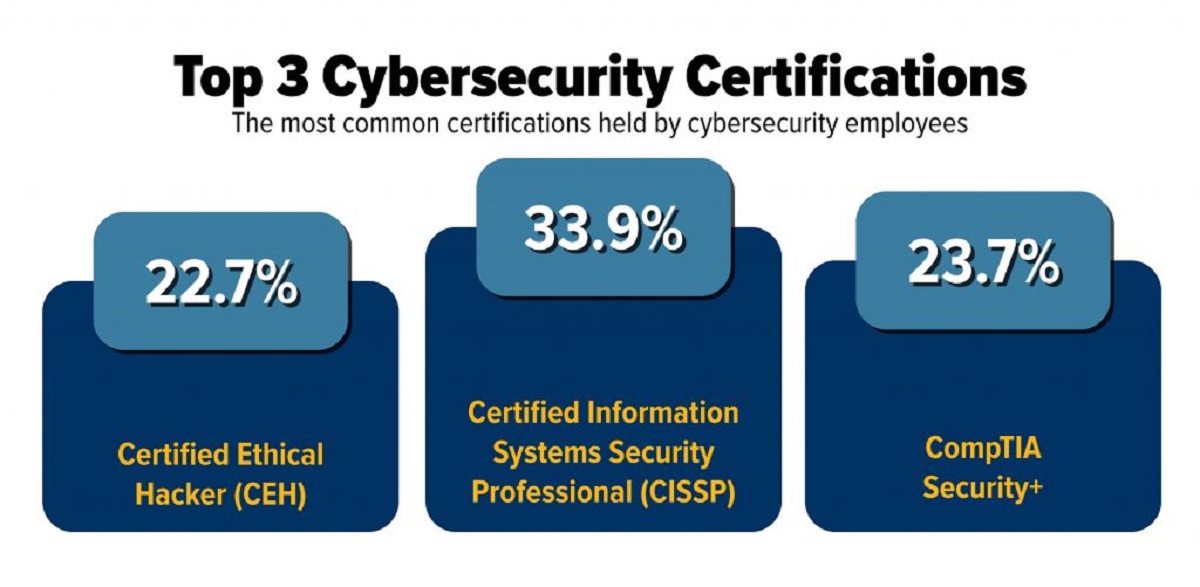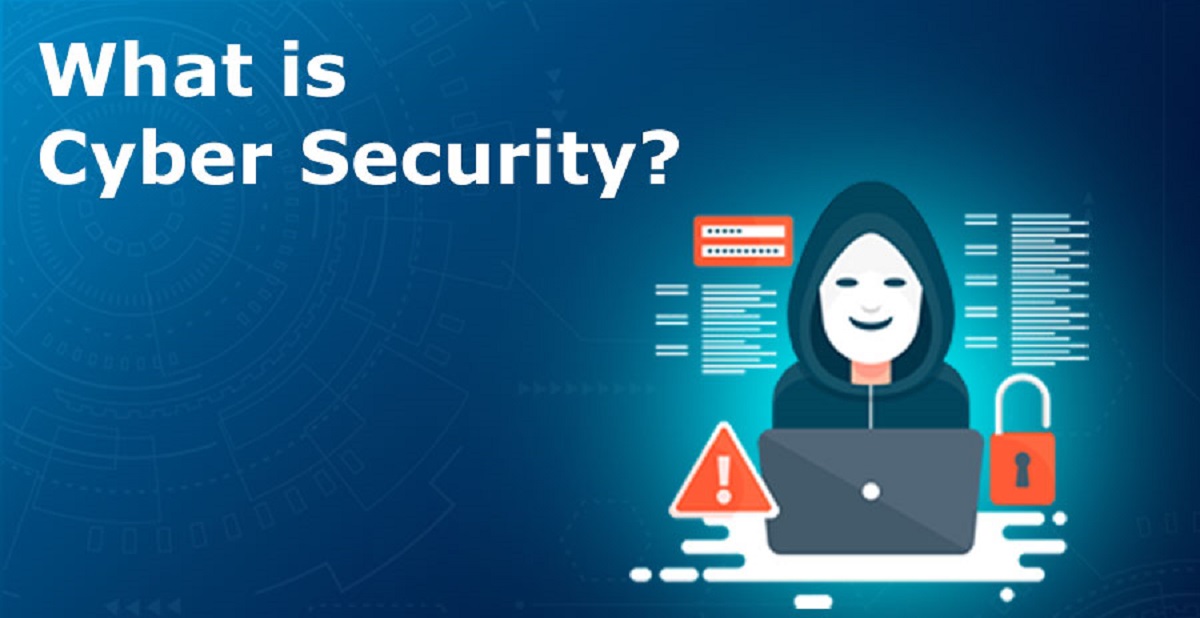Introduction
With the significant advancements in technology and the increasing reliance on digital platforms, the need for cybersecurity professionals has never been more critical. The digital age has brought about unparalleled opportunities and convenience, but it has also exposed individuals, organizations, and governments to various cyber threats. As a result, the demand for skilled cybersecurity experts has skyrocketed, leading to a plethora of career opportunities in this rapidly evolving field.
Cybersecurity, also known as information security, focuses on protecting digital systems, networks, and data from unauthorized access, breaches, and attacks. These threats can range from malicious software and phishing attempts to sophisticated cyberattacks and data breaches. Individuals and organizations across all sectors, including finance, healthcare, government, and entertainment, are increasingly recognizing the crucial role that cybersecurity professionals play in safeguarding their sensitive information.
Furthermore, the ever-growing interconnectedness of our world has multiplied the complexities and challenges faced by cybersecurity professionals. As technology advances, so do the tactics employed by cybercriminals. The cat-and-mouse game between cybersecurity experts and hackers requires constant learning, innovation, and adaptation, making it a highly dynamic and intellectually stimulating field.
In this article, we will explore the reasons why choosing a career in cybersecurity is not only a wise decision but also a rewarding and fulfilling choice. From the demand and job growth in the cybersecurity field to the opportunities for professional and personal development, we will delve into the various aspects that make a career in cybersecurity highly enticing.
Demand and Job Growth in the Cybersecurity Field
In today’s digital landscape, the demand for cybersecurity professionals is at an all-time high. As cyber threats continue to evolve and become more sophisticated, organizations are recognizing the necessity of having strong security measures in place to protect their sensitive data and digital assets. This increasing need for cybersecurity expertise has created excellent job prospects and remarkable job growth in the field.
According to a report by Frost & Sullivan, the global cybersecurity market is projected to reach $363.05 billion by 2027, growing at a compound annual growth rate (CAGR) of 9.4%. This substantial growth indicates the immense demand for cybersecurity professionals across industries, as companies strive to stay one step ahead of cyber threats.
Moreover, the job market in the cybersecurity field is incredibly diverse, offering a wide range of roles to suit various skill sets and interests. From security analysts and ethical hackers to cybersecurity consultants and incident responders, there is no shortage of opportunities for professionals to specialize in their area of expertise.
One of the factors driving the demand for cybersecurity professionals is the increasing number of cyber threats and attacks. From large-scale data breaches and ransomware attacks to potential threats to critical infrastructure, cybercrime poses a significant risk and economic impact. As a result, organizations are investing heavily in bolstering their cybersecurity defenses, leading to a steady stream of job openings in the field.
Furthermore, government regulations and industry standards are becoming more stringent regarding data protection and cybersecurity practices. Organizations that fail to comply with these regulations can face severe penalties, making cybersecurity professionals indispensable in ensuring regulatory compliance.
As the digital landscape continues to evolve, emerging technologies such as artificial intelligence (AI), cloud computing, and the Internet of Things (IoT) also present new challenges and vulnerabilities. This paradigm shift in technology requires cybersecurity professionals who can understand and mitigate the risks associated with these innovations, further contributing to job growth in the field.
Lucrative Career Opportunities in Cybersecurity
A career in cybersecurity not only offers job security but also presents lucrative opportunities for professionals in terms of salary and advancement. As the demand for cybersecurity professionals continues to rise, the salaries and benefits associated with these positions have seen a sharp increase.
According to the Bureau of Labor Statistics, the median annual wage for information security analysts was $103,590 in May 2020, well above the median annual wage for all occupations. Furthermore, the top 10% of earners in the field made over $158,860 per year, illustrating the potential for high earning potential in cybersecurity.
Moreover, as professionals gain experience and expertise in the field, they can progress into higher positions with more significant responsibilities and corresponding salary packages. This growth and advancement can lead to prestigious roles such as Chief Information Security Officer (CISO) or Security Architect, which often come with six-figure salaries and additional benefits.
Additionally, the field of cybersecurity offers various opportunities for specialization and niche expertise. Professionals can choose to specialize in areas such as penetration testing, network security, risk assessment, digital forensics, or secure coding, among others. This specialization allows individuals to become subject matter experts in their chosen area, increasing their marketability and potential earning power.
The cybersecurity field also presents opportunities for entrepreneurship and consulting. Experienced professionals with a deep understanding of cybersecurity best practices and regulations can start their own cybersecurity firms or work independently as consultants. This provides them with the freedom to set their own rates, choose clients, and work on a wide range of projects, further enhancing their earning potential.
Furthermore, the global nature of cybersecurity means that professionals have the opportunity to work on international projects and collaborate with teams from around the world. This not only adds diversity and excitement to the work but also opens doors for global career opportunities and the potential for higher compensation.
Overall, the combination of high demand, increasing salaries, and opportunities for specialization and advancement make a career in cybersecurity financially rewarding and attractive to professionals seeking a prosperous and fulfilling path.
Challenging and Dynamic Work Environment
A career in cybersecurity offers a work environment that is highly challenging and dynamic, ensuring that professionals are constantly engaged and learning. The ever-evolving nature of cyber threats and the need to stay ahead of hackers create an environment that is constantly evolving and presenting new challenges.
One of the reasons why cybersecurity professionals find their work environment stimulating is the continuous need for learning and staying up-to-date with the latest technologies and techniques. Cybercriminals are constantly devising new methods to breach security systems, which requires cybersecurity professionals to stay one step ahead by continually expanding their knowledge and skills.
Moreover, the multidisciplinary nature of cybersecurity means that professionals often collaborate with colleagues from different backgrounds and expertise, such as IT professionals, software engineers, and data analysts. This collaborative atmosphere not only promotes knowledge-sharing but also allows for a diverse range of perspectives in tackling complex security challenges.
The fast-paced and high-pressure nature of the cybersecurity field also necessitates quick thinking and problem-solving skills. Cybersecurity professionals often find themselves facing unexpected situations and have to respond promptly to mitigate potential risks and minimize the impact of security breaches.
Furthermore, the field of cybersecurity offers opportunities for professionals to engage in ethical hacking, also known as penetration testing. Ethical hackers are responsible for proactively identifying vulnerabilities in a system by attempting to breach it, thus helping organizations strengthen their security infrastructure. This aspect of the job requires a keen analytical mind, creativity, and the ability to anticipate and simulate real-world cyberattacks.
Additionally, cybersecurity professionals often find themselves at the forefront of technological advancements. They are responsible for incorporating security measures into emerging technologies such as AI, IoT, and cloud computing, ensuring that these innovations don’t compromise data and privacy. This involvement in cutting-edge technologies keeps professionals engaged and allows them to contribute to shaping the future of cybersecurity.
In summary, the challenging and dynamic work environment of cybersecurity keeps professionals motivated and continuously engaged in learning. The need for constant improvement and adaptation ensures that no two days are the same in this field, making it an exciting and intellectually stimulating career choice.
Impactful Contributions to Society
A career in cybersecurity goes beyond personal and professional growth—it also allows professionals to make meaningful and impactful contributions to society as a whole. In today’s digital world, where cyber threats pose significant risks to individuals, organizations, and governments, the role of cybersecurity professionals in protecting and safeguarding crucial information cannot be overstated.
One of the key contributions cybersecurity professionals make is preserving privacy and ensuring the confidentiality of sensitive data. With the growing reliance on digital platforms for various aspects of our lives, including financial transactions, healthcare records, and personal communication, the protection of individuals’ privacy has become paramount. Cybersecurity experts develop and implement robust security measures to mitigate potential breaches and safeguard personal information from falling into the wrong hands.
Furthermore, cybersecurity professionals play a vital role in safeguarding critical infrastructure, such as power grids, transportation systems, and healthcare facilities, from cyberattacks. The disruption or compromise of these essential systems can have grave consequences for public safety and well-being. By proactively identifying vulnerabilities and implementing security measures, cybersecurity experts help ensure the uninterrupted functioning of vital services and protect the overall resilience of society.
Cybersecurity professionals also contribute to combatting cybercrime and holding cybercriminals accountable for their actions. Through their expertise, they assist in investigating and resolving cyberattacks, gathering evidence, and aiding law enforcement agencies in prosecuting cybercriminals. This aspect of the job not only helps bring perpetrators to justice but also acts as a deterrent, making cyberspace a safer environment for all.
Moreover, cybersecurity professionals play a crucial role in raising awareness about cyber threats and promoting best practices for online safety. They educate individuals, organizations, and even governments about the importance of strong security measures, password management, and regular software updates. By empowering people with knowledge and tools to protect themselves, cybersecurity experts contribute to a more secure and resilient digital society.
Lastly, in an increasingly interconnected world, cybersecurity professionals also contribute to global security and international cooperation. They collaborate with counterparts from different countries, sharing information and insights to combat cyber threats that transcend national borders. Their work strengthens alliances and fosters a sense of collective responsibility in combating cybercrime.
All in all, a career in cybersecurity offers professionals the opportunity to make a significant and lasting impact on society. Whether it is protecting privacy, safeguarding critical infrastructure, combating cybercrime, or raising awareness, cybersecurity professionals play a vital role in ensuring a safer and more secure digital future for all.
Continuous Skill Development and Learning
A career in cybersecurity offers continuous opportunities for skill development and learning, making it an attractive choice for individuals who thrive in a dynamic and ever-evolving field. The rapid advancements in technology and the evolving nature of cyber threats require cybersecurity professionals to stay updated with the latest trends, tools, and techniques.
One of the key aspects of continuous learning in cybersecurity is staying informed about the latest cyber threats and attack vectors. Cybercriminals are constantly devising new methods and strategies to breach security systems, which necessitates cybersecurity professionals to stay vigilant and be knowledgeable about emerging threats. This ongoing learning process allows professionals to anticipate and mitigate risks effectively.
Additionally, the cybersecurity field offers numerous industry certifications that validate and enhance professionals’ expertise. Certifications such as Certified Information Systems Security Professional (CISSP), Certified Ethical Hacker (CEH), and Certified Information Security Manager (CISM) are highly regarded and can open doors to new career opportunities and advancements. Pursuing these certifications not only demonstrates proficiency but also requires professionals to acquire and master new skills through study, training, and practical experience.
Moreover, cybersecurity professionals have access to a wide range of resources, such as online courses, webinars, workshops, and conferences, all focused on skill development. These resources cover topics such as network security, cryptography, incident response, digital forensics, and ethical hacking. By actively engaging in continuous learning through these resources, professionals can sharpen their skills, expand their knowledge, and stay abreast of industry best practices.
Furthermore, the nature of cybersecurity work often involves collaborating with colleagues from diverse backgrounds, each with their unique skill sets and expertise. This collaborative environment fosters learning through knowledge exchange, allowing professionals to gain insights and perspectives from others in the field. This collective learning approach helps individuals broaden their understanding and develop cross-functional skills.
Continuous skill development in cybersecurity is not only limited to technical skills. Professionals also need to stay current with legal and regulatory requirements, as well as industry standards. Compliance with data protection and privacy regulations, such as the General Data Protection Regulation (GDPR) or Payment Card Industry Data Security Standard (PCI DSS), requires professionals to stay informed and adapt their practices accordingly.
To thrive in the ever-changing cybersecurity landscape, professionals must cultivate a mindset of curiosity and a passion for learning. This commitment to continuous skill development not only ensures professional growth but also enables individuals to stay relevant and competitive in the field.
Job Security and Stability in Cybersecurity
Job security and stability are significant factors to consider when choosing a career path, and cybersecurity offers a promising landscape in both regards. In today’s digital age, where cyber threats continue to pose significant risks, the demand for cybersecurity professionals remains consistently high.
One of the main reasons why job security is prevalent in cybersecurity is the increasing frequency and severity of cyberattacks. Hackers and cybercriminals are constantly looking for vulnerabilities to exploit, resulting in a continuous need for cybersecurity experts to protect digital systems and networks. As long as there are digital assets to protect, the demand for skilled cybersecurity professionals will remain strong.
Additionally, the global shortage of cybersecurity talent ensures that professionals in this field enjoy job security and stability. Organizations across industries are struggling to fill their cybersecurity positions, resulting in a talent gap. This scarcity of skilled professionals further strengthens the job security for those in the field, as employers recognize the value and importance of retaining cybersecurity experts.
Furthermore, cybersecurity roles are not limited to a specific industry or sector. Nearly every organization, regardless of its size or industry, requires cybersecurity professionals to safeguard their digital assets. This broad range of opportunities provides professionals with the flexibility to explore various sectors and industries, further enhancing job security and stability.
Moreover, government initiatives and regulations aimed at enhancing cybersecurity have further contributed to job security in the field. Governments worldwide are increasing their focus on cybersecurity, issuing regulations and guidelines to protect critical infrastructure and sensitive information. This proactive approach from governments ensures that there will be a continuous demand for cybersecurity expertise in the public sector, as well as in organizations that need to comply with these regulations.
Lastly, the constant evolution and innovation in technology guarantee that the field of cybersecurity will continue to evolve and present new challenges. This ongoing demand and need for professionals who can adapt to emerging threats and technologies provide long-term job security and stability in the field.
Overall, job security and stability in the cybersecurity field are a result of the increasing frequency of cyberthreats, the shortage of skilled professionals, the broad range of industries that require cybersecurity expertise, government regulations, and the continuous evolution of technology. Professionals entering the field can find reassurance in the fact that their skills will remain in high demand, providing a stable and secure career path.
Flexibility and Work-Life Balance
A career in cybersecurity offers professionals a considerable degree of flexibility and the potential for a healthy work-life balance, making it an attractive choice for individuals seeking greater control over their schedules and personal lives.
One of the key factors contributing to flexibility in the cybersecurity field is the ability to work remotely. Many cybersecurity tasks can be performed remotely, thanks to advancements in technology and the availability of secure virtual private networks (VPNs) and collaboration tools. This allows professionals to work from the comfort of their homes or any location with an internet connection, reducing the need for daily commuting and providing greater flexibility in managing their work and personal commitments.
In addition to remote work opportunities, cybersecurity professionals often have flexible work hours. While some tasks may require immediate attention, such as incident response or handling urgent security incidents, others can be planned and executed based on the individual’s availability and the organization’s needs. This flexibility in work hours allows professionals to accommodate their personal responsibilities and priorities, ensuring a better work-life balance.
Furthermore, the field of cybersecurity offers various career paths and roles, each with its own requirements and demands. This diversity allows professionals to choose roles that align with their preferred work-life balance. For example, individuals who thrive in fast-paced, high-pressure environments may opt for roles in incident response or ethical hacking, while those seeking a more business-focused approach may choose cybersecurity consultancy or risk management.
Additionally, organizations in the cybersecurity field often place a strong emphasis on work-life balance and employee well-being. Recognizing the importance of maintaining a healthy and motivated workforce, companies may offer flexible work arrangements, wellness programs, and opportunities for professional development. These initiatives contribute to a more supportive work environment and enable professionals to strike a better balance between their personal and professional lives.
Moreover, the rapidly evolving nature of cybersecurity requires professionals to stay updated and continuously learn new skills. This ongoing learning process can often be managed on an individual’s own schedule, providing flexibility in pursuing certifications, attending industry conferences, or completing online courses.
In summary, the cybersecurity field offers professionals the potential for flexibility and a better work-life balance. Remote work opportunities, flexible work hours, diverse career paths, and supportive organizational cultures make it possible for individuals to manage their personal commitments while successfully fulfilling their professional responsibilities.
Diverse Range of Roles in Cybersecurity
The field of cybersecurity offers a diverse range of roles to suit various skill sets and interests, making it an appealing career choice for individuals with different strengths and passions. Whether you have a technical background or possess strong analytical and problem-solving skills, there is a role in cybersecurity that can align with your expertise.
One of the primary roles in cybersecurity is that of a security analyst. Security analysts are responsible for monitoring and analyzing security incidents, conducting vulnerability assessments, and implementing security measures to protect systems and networks. They play a critical role in identifying and responding to cyber threats, ensuring the overall security of an organization’s digital assets.
Ethical hackers, also known as penetration testers, are another vital aspect of the cybersecurity field. Ethical hackers are authorized professionals who assess the security of systems by attempting to exploit vulnerabilities. They help organizations identify weaknesses in their security infrastructure and provide recommendations for improvement.
Risk management professionals in cybersecurity focus on assessing and mitigating risks related to data breaches and cyber threats. They develop risk management strategies, analyze potential vulnerabilities, and implement measures to minimize the impact of security incidents. Their work helps organizations strategically manage risks and protect their valuable assets.
Digital forensics experts play a crucial role in investigating cybercrimes and gathering evidence for legal proceedings. They have expertise in analyzing digital traces left behind by attackers, reconstructing events, and identifying the culprits. Digital forensics professionals are essential in the fight against cybercrime and in ensuring justice is served.
Cybersecurity consultants are sought-after professionals who provide organizations with expert advice on security measures, compliance, and risk management. They assess an organization’s security posture, develop security strategies, and help implement security policies and procedures. This role often involves working closely with clients, understanding their unique requirements, and tailoring solutions to address their specific cybersecurity needs.
Other roles in cybersecurity include security architects, who design and implement secure systems and networks, and incident response analysts, who are responsible for handling and resolving security incidents in a precise and timely manner.
Within each of these roles, there are opportunities to specialize further based on specific areas of interest. Whether it’s cryptography, network security, cloud security, or secure coding, cybersecurity professionals can develop expertise in niche areas, enhancing their marketability and career prospects.
In summary, the field of cybersecurity offers an extensive range of roles that cater to individuals with diverse skill sets and interests. From technical roles like security analysts and ethical hackers to more strategic roles like risk managers and consultants, there are opportunities for professionals to contribute to the security and resilience of organizations in various capacities.
Conclusion
Choosing a career in cybersecurity is a wise and rewarding decision. The increasing demand for cybersecurity professionals, coupled with job security and stability, makes it an attractive field for individuals seeking long-term career prospects. The field offers a diverse range of roles, allowing professionals to find their niche and pursue their passions. Lucrative career opportunities, continuous skill development, and impactful contributions to society further add to the appeal of a cybersecurity career.
The challenging and dynamic work environment in cybersecurity ensures constant learning and growth, as professionals stay one step ahead of evolving cyber threats. The field also provides flexibility, thanks to remote work opportunities and flexible work hours, enabling professionals to attain a better work-life balance. Additionally, the global nature of cybersecurity and the interconnectedness of our digital world open doors to international collaborations and diverse career opportunities.
Cybersecurity professionals play a vital role in protecting individuals, organizations, and critical infrastructure from cyber threats. By preserving privacy, safeguarding data, and combatting cybercrime, they make a tangible impact on society and contribute to a safer digital future.
In conclusion, a career in cybersecurity offers a combination of stability, growth, and meaningful work. As technology continues to advance and cyber threats become more sophisticated, the need for cybersecurity professionals will only increase, ensuring a prosperous and fulfilling career in this rapidly evolving field.

























